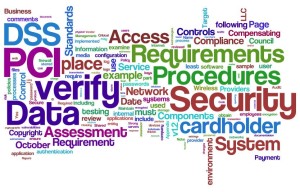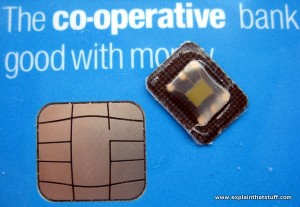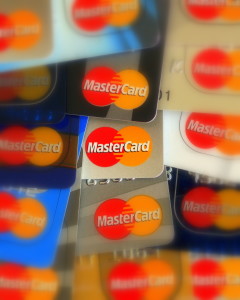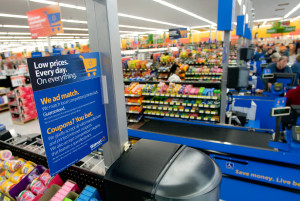May 7th, 2014 by Elma Jane

NTC’s New Approach On Payment Processing brings Client Satisfaction
About NTC (National Transaction Corporation)
NTC is a credit card processing company that was built uniquely. Combining leading edge technology with passion for customer service, as well as service to help customers maximize the value of their merchant service program. NTC provides sales agents, financial institutions and merchants with benefits not available from other providers, such as next day funding with a late cut-off time and unparallel graphical and web-based reporting.
To learn more visit http://www.nationaltransaction.com or call 888-996-2273.
Marking a 65% increase over 2012 NTC now serves approximately 15,000 businesses.
This rapid growth was driven by the many unique benefits that NTC offers its merchants and sales partners, ranging from best technology to superior customer service.
The major differentiators made possible by NTC’s proprietary back-end processing system is the Next Day Funding Service. Because NTC connects directly to the following: Amex, Discover, MasterCard and VISA. This way sales partners and merchants are able to avoid the middleman and go straight to the source of all their processing needs. This also means that the merchants can batch out their terminal POS with one of the latest cut-off times in the industry by as late as 11:00 pm Eastern.
NTC’s another appealing factor to new sales partners and merchants is its merchant connect online reporting system. It provides 24/7 access to graphical account information through a system that is fast easy and secure. Merchants are now able to clearly see and understand their payment processing costs. ISO’s have access to sugar CRM to make notes and see Merchant Marketing Data. Card Numbers are secure on the banks server so our faculty has credentials to access the bank servers.
Independent sales organizations (ISOs) and Merchant sales professionals continue to choose NTC as their payment processing partner to obtain these unique benefits. In addition to industry-leading technology, NTC offers its merchants and sales partners a level of personalized support that is not easily found among other credit card processing companies. They get round the clock account and terminal support. Collective hard work and determination helped NTC grow faster in the industry, resulted in more loyal ISO sales partners who are submitting more applications. Looking forward for continued success for NTC, its sales partners and merchants.
Posted in Credit card Processing, EMV EuroPay MasterCard Visa, Financial Services, Merchant Account Services News Articles, nationaltransaction.com, Point of Sale, Visa MasterCard American Express Tagged with: amex, back-end processing, bank, bank servers, card, card numbers, credit card processing, credit-card, customer service, Discover, financial institutions, marketing data, MasterCard, merchant, merchant connect, merchant service, next day funding, payment processing, POS, provider's, sales agents, sales partners, sugar CRM, terminal, visa, web-based
May 6th, 2014 by Elma Jane
Which fee structure works best remains unclear despite the recent high-profile data security breaches that are emphasizing the need for security measures. Acquirers charge fees – or not – based on what’s best for their business model and their security objectives
Some charge merchants that comply, others charge merchants that fail to comply and a few charge both. Some Independent Sales Organizations (ISOs) don’t charge merchants a fee for helping them comply with the Payment Card Industry data security standards (PCIS DSS).
If there is any trend, it’s that more banks are finding that some sort of funding is necessary to run a program that gets any results. That funding covers costs for security assessments and compliance assistance as well as internal resources for acquirers. When it comes to covering those costs and creating incentives for compliance, no one fee structure is ideal.
Non-compliance fees encourage merchants to comply so they can save money, but the fees may not accomplish that. Unless you charge exorbitantly, it’s not going to have the effect you want it to have, and by the time you charge that much, the merchant’s just going to move to a different ISO.
ISOs charging non-compliance fees often claim the fee revenue goes into an account designated for use in case of a breach. Non-compliance fees can also reward acquirers for doing nothing to increase compliance. You get this situation where a bank has a revenue stream. Their objective is not to increase the revenue stream but to increase compliance, when they increase compliance, the revenue stream goes down.
It is recommended to some acquirers that they consider charging merchants fees for doing things like storing card data, which could be checked with a scanning tool. Merchants that do store data or fail to run the scan would be charged a fee. That is something that could really decrease risk, because if you’re not storing card data, even if you are breached, there’s nothing to get.
Simplifying the compliance verification process, by making assessment questionnaires available on its merchant portal and by teaching merchants about PCI, will minimize the potential impact of fraud by increasing compliance, which saves the company money in the long run versus a more laissez-faire approach of fees without education and compliance tools.
It’s more important to educate the merchant, it’s the spirit and intent of PCI-DSS supported by the card associations. Visa and MasterCard support it because of the severe impact of a breach or other data compromise, not as a revenue source.
ISOs and other players in the payments chain that do not work to help merchants comply are also putting themselves at risk. Breached merchants may be unable to pay fines that come with a data compromise, potentially leaving ISOs responsible for paying them. Merchants that go out of business because of a data breach also stop providing the ISO with revenue.
Plus, when merchants ask why they’re being charged a non-compliance fee, point them to the questionnaire and explain that they’ll stop being charged as soon as they demonstrate they comply with PCI.
Posted in Best Practices for Merchants, Credit Card Security, Merchant Account Services News Articles, Payment Card Industry PCI Security Tagged with: card associations, card data, compliance, compliance fee, data, data security standards, ISOs, MasterCard, Merchant's, Payment Card Industry, portal, security breaches, visa
May 6th, 2014 by Elma Jane
MasterPass in-app payments is this latest offering from MasterCard to address the specific needs of the digital ecosystem. With MasterPass in-app payments, MasterCard is creating great experiences for consumers across all channels and all devices, and enabling merchants to reach new consumers in ways not possible in the pre-digital world.
MasterPass an in-app payments enabling consumers to make secure purchases within a mobile app has been announced by Mastercard. MasterPass in-app payments eliminate the need to store payment card credentials across numerous mobile apps, providing consumers with a fast and simple payment experience.
MasterCard is also developing a framework to make all payments using MasterPass as or more secure than anything, ensuring that consumers can benefit from the highest possible levels of security.
MasterPass in-app payments extend the capabilities of the current browser-based MasterPass digital service into the mobile app environment, and provide consumers with one secure direct relationship with their bank. Apps with MasterPass embedded in them enable consumers to complete a purchase with as few as one click or touch on their favorite connected device without leaving the app environment. MasterPass in-app payments will be made available to developers and merchants beginning in Q2 of this year.
Posted in Best Practices for Merchants, Digital Wallet Privacy, EMV EuroPay MasterCard Visa, Financial Services, Mobile Payments, Payment Card Industry PCI Security, Smartphone, Visa MasterCard American Express Tagged with: card credentials, consumers, digital service, in-app payments, MasterCard, MasterPass in-app payments, Merchant's, mobile app, payments, pre-digital, Security
April 17th, 2014 by Elma Jane
Issuers participating in the MasterCard Rewards Platform can pursue greater engagement and value in their programs through a partnership MasterCard is announcing today with Points International Ltd. The companies say they struck the deal to take advantage of the popularity of travel and related experiences. Under the agreement, participating issuers can let their cardholders to exchange and trade earned airline miles, hotel points and loyalty currencies.
Travel happens to be one of the most popular redemption options for points on most programs today. So this is really about enabling consumers to get even more choice with regard to getting some redemption options.
Issuers individually will roll out the program later this year based on their own schedules. Any of the hundreds of banks that use the MasterCard Rewards Platform are eligible to participate. Participation is voluntary.
Enhanced flexibility in cardholder reward redemptions was a key driver behind the initiative, what this partnership allows to do is enable all customers that have points that they’ve gained from spending on their credit cards or debit cards to then exchange those points into a miles program or a hotel program that they tend to always have a lot of other points accumulated already.
Variable Exchange Rates
Cardholders will be provided with a conversation ratio applicable to the pair of rewards being exchanged. Ratios will differ by redemption transaction. Consumers also may choose to transfer small buckets of rewards points into one program and the rest in other programs. They can do transfers multiple times and across multiple rewards providers.
Posted in Best Practices for Merchants, Credit card Processing, Gift & Loyalty Card Processing, Travel Agency Agents Tagged with: airline, airline miles, banks, cardholder, credit cards, debit cards, hotel, loyalty, MasterCard, platform, programs, reward, rewards, transaction, transfers, travel, travel related
February 18th, 2014 by Elma Jane
Payment Tokenization Standards
Tokenization is the process of replacing a traditional card account number with a unique payment token that is restricted in how it can be used with a specific device, merchant, transaction type or channel. When using tokenization, merchants and digital wallet operators do not need to store card account numbers; instead they are able to store payment tokens that can only be used for their designated purpose. The tokenization process happens in the background in a manner that is expected to be invisible to the consumer.
EMVCo – which is collectively owned by American Express, Discover, JCB, MasterCard, UnionPay and Visa – has announced that it is expanding its scope to lead the payments industry’s work to standardize payment tokenization. EMVCo says that the new specification will help provide the payments community with a consistent, secure and interoperable environment to make digital payments when using a mobile handset, tablet, personal computer or other smart device.
Key elements of EMVCo’s work include adding new data fields to provide richer industry information about the transaction, which will improve transaction efficiency and enhance the consumer and merchant payment experience by helping to prevent fraudulent card account use. EMVCo will also create a consistent approach to identify and verify the valid use of a token during payment processing including authorization, capture, clearing and settlement.
EMVCo’s announcement follows an earlier joint announcement from MasterCard, Visa and American Express that proposed an initial framework for industry collaboration to standardize payment tokenization. EMVCo says it will now build on this framework with collective input from all of its members and the industry as a whole.
Posted in Credit card Processing, Credit Card Reader Terminal, Credit Card Security, Digital Wallet Privacy, Electronic Payments, Financial Services, Payment Card Industry PCI Security, Visa MasterCard American Express Tagged with: American Express, authorization, capture, card account numbers, clearing, data fields, device, digital payments, Digital Wallet, Discover, EMV, emvco, fraudulent card account, interoperable, jcb, MasterCard, merchant, mobile handset, payment, payment processing, payment token, secure, security standards, settlement, smart device, specification, standardize, tablet, token, tokenization, transaction, visa
January 23rd, 2014 by Elma Jane
Commonwealth Bank of Australia (CBA) will now offer the embedded payments service to customers that use the Samsung Galaxy S4 and have CBA’s mobile banking app. MasterCard indicated that this development allows these customers to make payments at more than 1.6 million PayPass-enabled merchant locations around the globe.
MasterCard is just one major issuer that views embedded chips in NFC-enabled phones as the key to unlocking mobile payments globally. But, its news yesterday of how it is going to leverage its Samsung partnership puts a bit of a different spin on digital wallets and mobile payments.
“Our focus is on helping consumers shop and pay in a way that best fits their needs, across all of their devices,” Mung Ki Woo, group executive of mobile and industry alliances at MasterCard, said in a December 11 statement.
The move is part of MasterCard’s continued relationship with Samsung. Earlier this year, MasterCard teamed with the handset maker to offer exclusive deals and special discounts to Samsung Galaxy S4 users in Bangladesh.
Posted in Electronic Payments, Financial Services, Mobile Payments, Mobile Point of Sale, Near Field Communication, Smartphone, Visa MasterCard American Express Tagged with: commonwealth, devices, Digital wallets, embedded payments, make payments, MasterCard, merchant, mobile banking app, Mobile Payments, nfc-enabled phones, paypass, Samsung, shop and pay
January 9th, 2014 by Elma Jane
Notably after the Japanese tsunami…the Hungarian Red Cross has used mobile technology to raise funds for disaster relief, but for the first time has enlisted social media in the process. The organization is running a Facebook campaign that lets smartphone users make instant donations to aid victims of Typhoon Haiyan in the Philippines.
The donations will pass through the MasterCard Mobile app that was developed by the Hungarian m-payments firm Cellum. The solution relies on QR codes. The method is available only in Hungary.
Process works like this:
Download the MasterCard Mobile app to your smartphone and register your bank card, then follow the steps to secure your personal data.
To donate, scan the QR code shared on Facebook with the built-in scanner of MasterCard Mobile. Transaction data are displayed on the screen to ensure the donation goes to the chosen cause.
The QR code contains a minimum sum, which can be increased.
Then press the send button to review and confirm transaction data.
The app then initiates the transaction, which you need to authorize by entering your mPIN.
You will receive feedback on the successful transaction, which can later be viewed in the transactions menu.
The donations will pass through Cellum’s system and quickly go to the Hungarian Red Cross’ account, which is dedicated to typhoon relief efforts.
Donations are a matter of impulse and that people who decide to give want to act quickly, chances are they don’t carry around a pen to put down a 24-digit bank account number on a piece of paper. By the time they get home and visit their online bank where they could transfer the money, they have already been distracted by a hundred other stimuli, so they end up sending nothing. Cellum’s solution is simple; whenever the impulse hits people, they probably have their phone at hand said Cellum spokesman Balazs Inotay.
Posted in e-commerce & m-commerce, Internet Payment Gateway, Medical Healthcare, Smartphone Tagged with: account number, authorize, confirm transaction data, Facebook, m-payments, MasterCard, mobile app, mobile technology, personal data, phone, PIN, process, qr codes, Red Cross, scanner, secure, smartphone, social media, solution, successful transaction, transfer
December 30th, 2013 by Elma Jane
Earlier this year, American Express offered its cardholders free permanent membership in ShopRunner, a service that gives its members free, two-day shipping at several retail sites. Similarly, PayPal recently tested two-day free shipping offers with a few retailers, whereby shoppers could get free, two-day shipping without an annual fee if they simply checked out using PayPal. The offer had no minimum purchase requirement. Now, Global payment firm MasterCard announced that its customers will receive free, two-day shipping from five of the Internet’s leading retailers. MasterCard also offered a premium service that extends the free, two-day shipping offer to other online merchants. MasterCard joins American Express and PayPal in offering customers free, two-day shipping options at select online retailers.
Collectively ShopRunner, PayPal’s offer, and MasterCard’s recent move may be part of what some in the retail industry are calling the Amazon Prime effect, which is a trend to faster, free shipping services driven in part by Amazon’s Prime service. These offers are changing customer expectations, so that merchants, regardless of size, may need to change free shipping offers to reflect the two-day service available from Amazon Prime, ShopRunner, and now MasterCard.
MasterCard Offer Aims at Large Retailers
To take advantage of the MasterCard offer, shoppers must register at a special MasterCard site, sign in and shop from the site, select two-day shipping at checkout and of course, pay with a MasterCard. Customers will have to pay for the two-day shipping upfront and email the order confirmation to MasterCard to be reimbursed.
Regular online shoppers may purchase an annual subscription for $69.99, extending the free, two-day shipping to about 30 larger retailers, including Nordstrom, J. C. Penney, Home Depot, and GameStop. The premium annual subscription also raises the maximum limit from $500 for six months to $1,500 per year.
The “Free Shipping by MasterCard” offer features five of the retail industry’s best known merchants: Best Buy, QVC, Macy’s, Kohl’s, and Walmart. Online purchases made from these sellers can earn free shipping up to $20 per purchase and $500 maximum over a six-month period.
Implications for Small, Mid-sized Ecommerce Merchants
Free shipping is now or, at least is becoming a key to online ecommerce success. As an example, Forrester Research’s U.S. Online Holiday Retail Forecast 2013, which was released on November 25, found that many online shoppers will leave a site and not buy anything if there is not a free shipping offer available.
Customers may look at shipping as an extra cost or even a waste of money, which is different from how they calculate the gas and inconvenience of going to a store or mall. Even offering free shipping with a minimum purchase can make customers feel better about the checkout process.
Where MasterCard’s offer is different is that it is increasing the expectation around how long a package should take to arrive, and, perhaps, changing how sellers need to think about free shipping.
When an ecommerce retailer purchases pay-per-click advertising, invests in email marketing, buys banner ads, or even prints a brochure or catalog to include in the shipping box, that retailer is investing to acquire or keep customers.
When it comes to accounting for these marketing investments, pay-per-click advertising, as an example, is often taken as part of marketing expenses generally and not attributed directly to a single transaction. For this reason, it is possible that merchants are losing money on some particular orders because of the advertising and promotional expenses associated with those particular orders, but making a profit overall thanks to spreading out marketing costs over all orders and generally increasing the total number of orders and reorders.
Ecommerce businesses may need to start thinking about shipping costs, even two-day shipping costs, in a similar way, not necessarily associating these costs with individual orders, but looking at the business as a whole to see if the free shipping offers are increasing profitability or market share company wide.
New Opportunity for Payment Providers
Free, two-day shipping offers also represent an opportunity for payment companies, like MasterCard, since these free shipping offers could give a particular payment service a competitive advantage. After all, most shoppers will choose the payment card or payment option that provides free shipping over other payment choices.
For the most part, PayPal, American Express via ShopRunner, and now MasterCard are focusing on large retailers, but there may be another opportunity with small and mid-sized online merchants.
Posted in Credit card Processing, e-commerce & m-commerce, Electronic Payments, Point of Sale, Visa MasterCard American Express Tagged with: Amazon, American Express, catalog, checkout, ecommerce, free, macy's. kohls, marketing, MasterCard, Merchant's, online, online merchants, pay-per-click, PayPal, purchases, qvc, retailers, shipping, shoppers, shoprunner, site, walmart
December 30th, 2013 by Elma Jane
MasterCard and Green Dot today announced an expanded relationship that allows all U.S. cardholders with MasterCard rePower -enabled prepaid cards to reload their cards via the Walmart Rapid Reload service.
Walmart Rapid Reload utilizes the Green Dot Network to provide cardholders with a fast and easy way to load funds directly to their cards by swiping their cards at any register at participating Walmart stores (not available in VT or WY). Cardholders can add funds directly to their prepaid account by using cash or a pre-printed payroll or government check. Cashier-added funds will be available for use by MasterCard rePower-enabled cardholders within minutes.
The MasterCard rePower network is open to any MasterCard issuer of reloadable prepaid card programs. Portfolios such as the Univision MasterCard Prepaid Card will be able to offer their cardholders the new cash reload option through Walmart Rapid Reload.
Prepaid products provide consumers with choices in how they manage and spend their money. In order to maximize the potential of prepaid, cardholders need to be able to conveniently and securely reload funds. Our expanded partnership with Green Dot now allows our cardholders to load funds to their prepaid cards at more than 4,000 Walmart stores that offer Walmart’s Rapid Reload service, said MasterCard Group Executive of U.S. Market Development Craig Vosburg.
Posted in Credit card Processing, Electronic Payments, Gift & Loyalty Card Processing, Visa MasterCard American Express Tagged with: cardholders, green dot, MasterCard, network, pre-printed, prepaid cards, rapid reload, register, reloadable, repower, securely, Swiping, univision, walmart
December 30th, 2013 by Elma Jane

Google
With New Debit Card, Google Admits Digital Isn’t Everything
The maker of all things digital is introducing a debit card for accessing Google Wallet accounts. Google is getting physical.
A debit card alone is not a platform, or at least not a new one. In this case, it’s the payments version of comfort food: an everyday, easy-to-use technology to drive greater adoption of the less familiar Wallet platform.
This isn’t a new concept for a digital wallet. PayPal itself has a debit card. The significance for Google is more in its apparent acknowledgment that its business needs to play in the physical world. Earlier this week, the company ramped up its Google Shopping Express service with a partnership with Costco, further expanding its presence in the buying and selling of physical goods. Its self-driving cars are another way the company is reaching beyond digital, though never losing sight of the digital-derived lesson that the real business opportunity is in platforms, not just products.
The MasterCard-branded card is swipe-able at stores, and it can be used to withdraw cash at ATMs, Google said. The company pitched its new plastic in a blog post today as a way to pay for things offline without waiting for the money in your Google Wallet to transfer to a bank account.
This should sound familiar to users of PayPal or any other digital wallet, where the lag time between receiving money and being able to spend it makes such services marginal in the brick-and-mortar world, where most consumer dollars get spent.
That it took Google this long to make such a card available shows just how hard it is for the company to re-imagine itself as expanding beyond digital. For years, Google has supported NFC tap-to-pay technology that lets users of the few phones with such chips use their handsets to pay by Wallet at the few merchants with point-of-sale systems that support NFC. With the release of a debit card, Google seems to be acknowledging that battle is lost for now. In a world Google is trying to remake in its digital-first image, plastic still prevails.
Posted in Digital Wallet Privacy, Mobile Payments, Mobile Point of Sale, Near Field Communication, Point of Sale, Smartphone Tagged with: brick and mortar, costco, debit card, digital, handsets, MasterCard, nfc, payments, PayPal, phones, plastic, platform, point of sale, Tap to Pay, wallet









